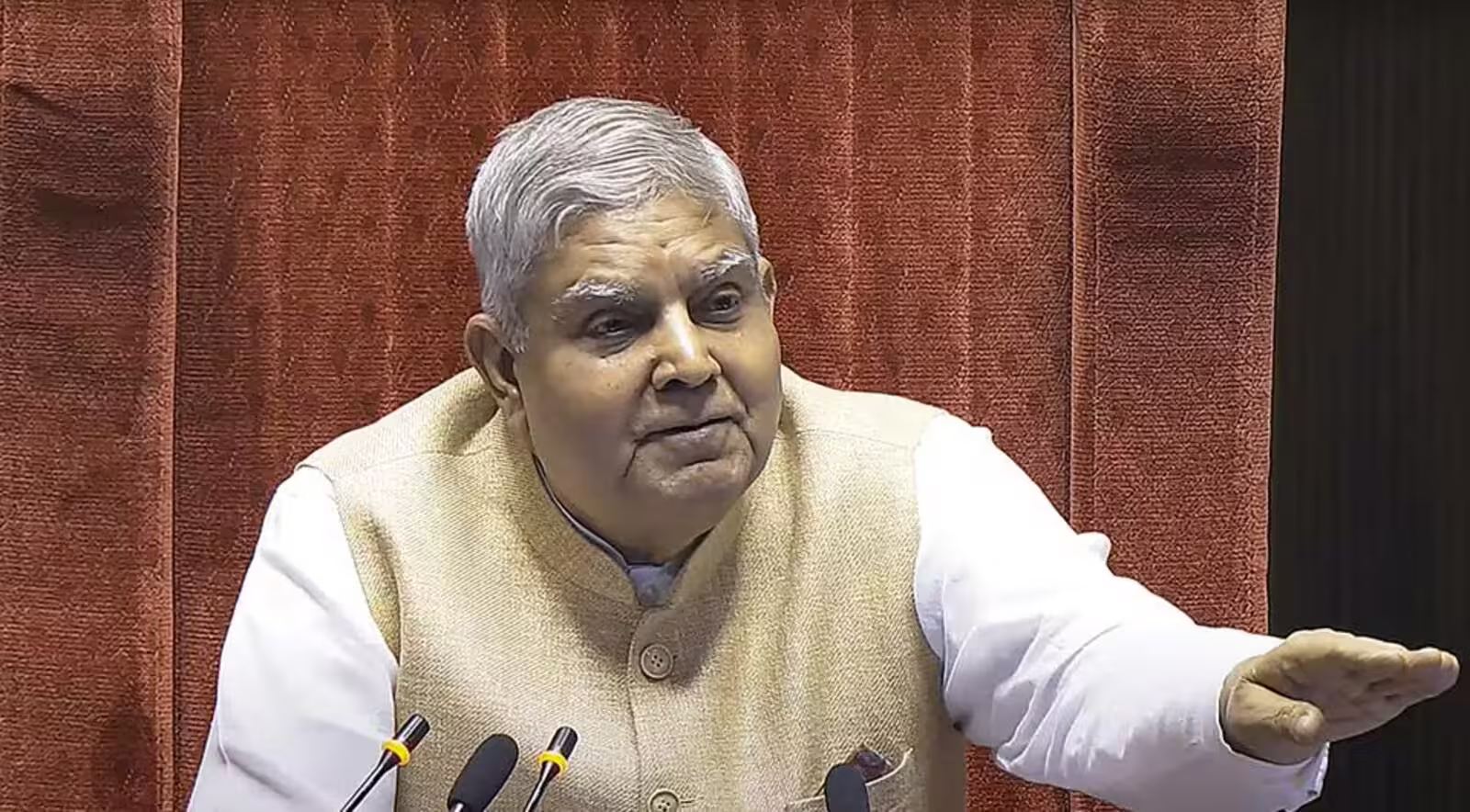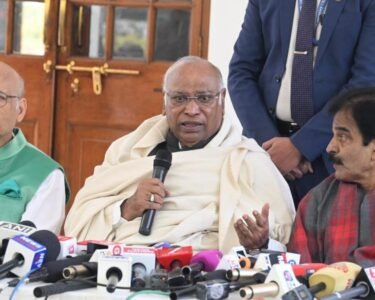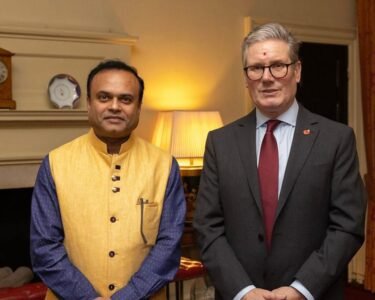In a dramatic and unexpected development that has sent shockwaves across India’s political landscape, Vice-President Jagdeep Dhankhar resigned from his post on Monday evening, citing health reasons. The resignation came just hours after the Monsoon Session of Parliament commenced, setting off intense speculation and sparking a political uproar.
Shocking Exit on Day One of Parliament Session
Dhankhar, 74, submitted his resignation to President Droupadi Murmu, invoking Article 67(a) of the Constitution. “To prioritise health care and abide by medical advice, I hereby resign as Vice President of India, effective immediately,” the letter read.
A seasoned political figure, Dhankhar had assumed office in August 2022 and was scheduled to serve a five-year term till 2027. In addition to his role as Vice-President, he also served as the ex-officio Chairperson of the Rajya Sabha, where his tenure was marked by frequent and fiery exchanges with opposition leaders. Known for his blunt commentary and legal acumen, Dhankhar often courted controversy, occasionally drawing criticism even from within government circles.
Resignation Raises Eyebrows Across Party Lines
While Dhankhar cited health concerns, particularly following a recent angioplasty procedure at AIIMS Delhi, senior Congress leader Jairam Ramesh questioned the timing and intent of the resignation. In a post on X (formerly Twitter), Ramesh wrote:
“This resignation is as shocking as it is inexplicable. I was with him till 5 PM and even spoke to him over the phone at 7:30 PM. There is clearly more to this than meets the eye.”
Ramesh further claimed that Dhankhar was due to chair a Business Advisory Committee meeting the very next day and was expected to make important announcements related to judicial matters. He hinted that the resignation could be connected to recent parliamentary developments, particularly the acknowledgement of an Opposition-backed motion for the removal of Justice Yashwant Varma of the Allahabad High Court — a move that reportedly caught the government off guard.
Political Undercurrents and Speculation
The timing of Dhankhar’s resignation, hours after recognizing the contentious motion in the Rajya Sabha, has intensified speculation about political friction behind the scenes. It is worth noting that Dhankhar becomes only the third Vice-President in Indian history to resign mid-term, following V V Giri and R Venkataraman, both of whom had quit to run for President — a move Dhankhar is not expected to emulate.
His resignation letter, however, avoided any reference to controversies. Instead, he thanked the President, Prime Minister Narendra Modi, the Council of Ministers, and Members of Parliament for the opportunity to serve. He described his tenure as a “true honour” during a “transformative era of unprecedented development.”
Who Will Be the Next Vice-President?
Attention has now turned toward who will succeed Dhankhar. Given the NDA’s numerical advantage in the Vice-Presidential Electoral College, which comprises members from both the Lok Sabha and the Rajya Sabha, the BJP is expected to steer the decision.
Among the front-runners is Harivansh Narayan Singh, the current Deputy Chairman of the Rajya Sabha and a trusted JD(U) MP with close ties to the government. Other names doing the rounds include seasoned Union Ministers, sitting Governors, and veteran BJP leaders known for their administrative experience and relatively non-controversial profiles.
A senior BJP functionary, speaking anonymously, hinted that the party would likely pick someone “solid, seasoned, and non-divisive,” especially with the 2024 general elections looming.
A Resignation with Far-Reaching Implications
While health concerns have been offered as the official explanation, Dhankhar’s sudden resignation just 22 months into office, amidst a sensitive judicial motion and critical parliamentary activity, hints at deeper fissures in the political architecture. The developments have given the opposition fresh ammunition and have forced the ruling NDA to go into damage control mode.
As political analysts decode the fallout, one thing is certain: the Vice-President’s resignation has not only created a vacancy but also a vortex of political uncertainty at a time when unity and clarity are most needed within India’s governing structure.
More updates are expected as the government begins the process of selecting a new Vice-President and the opposition intensifies its demand for transparency.







